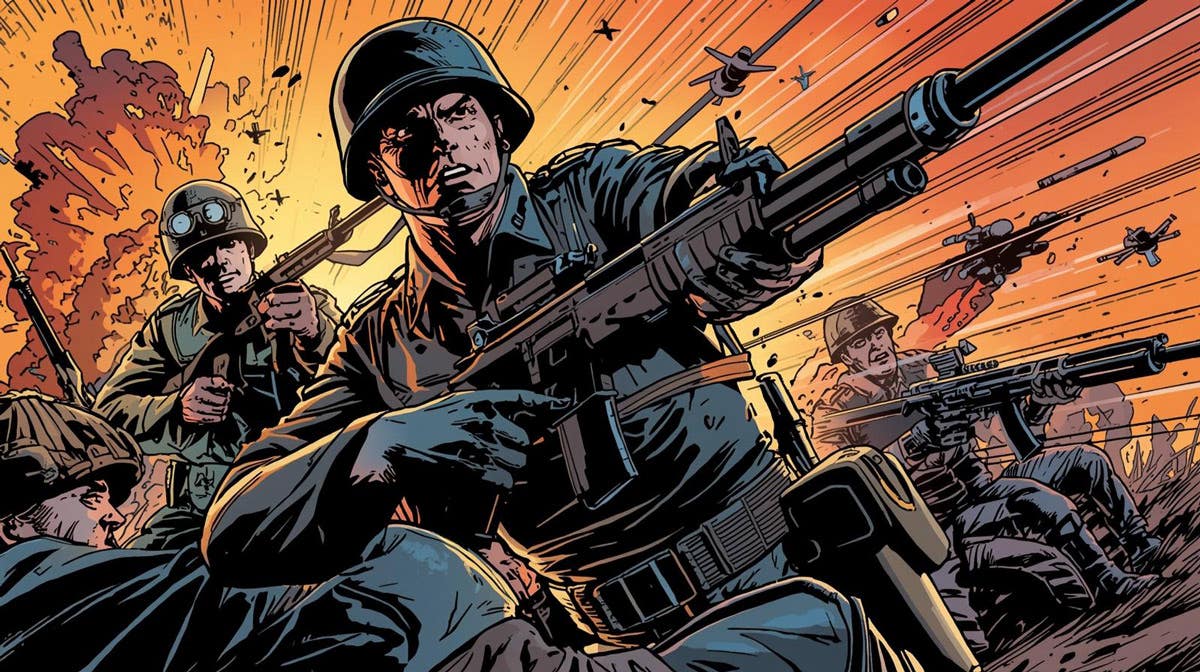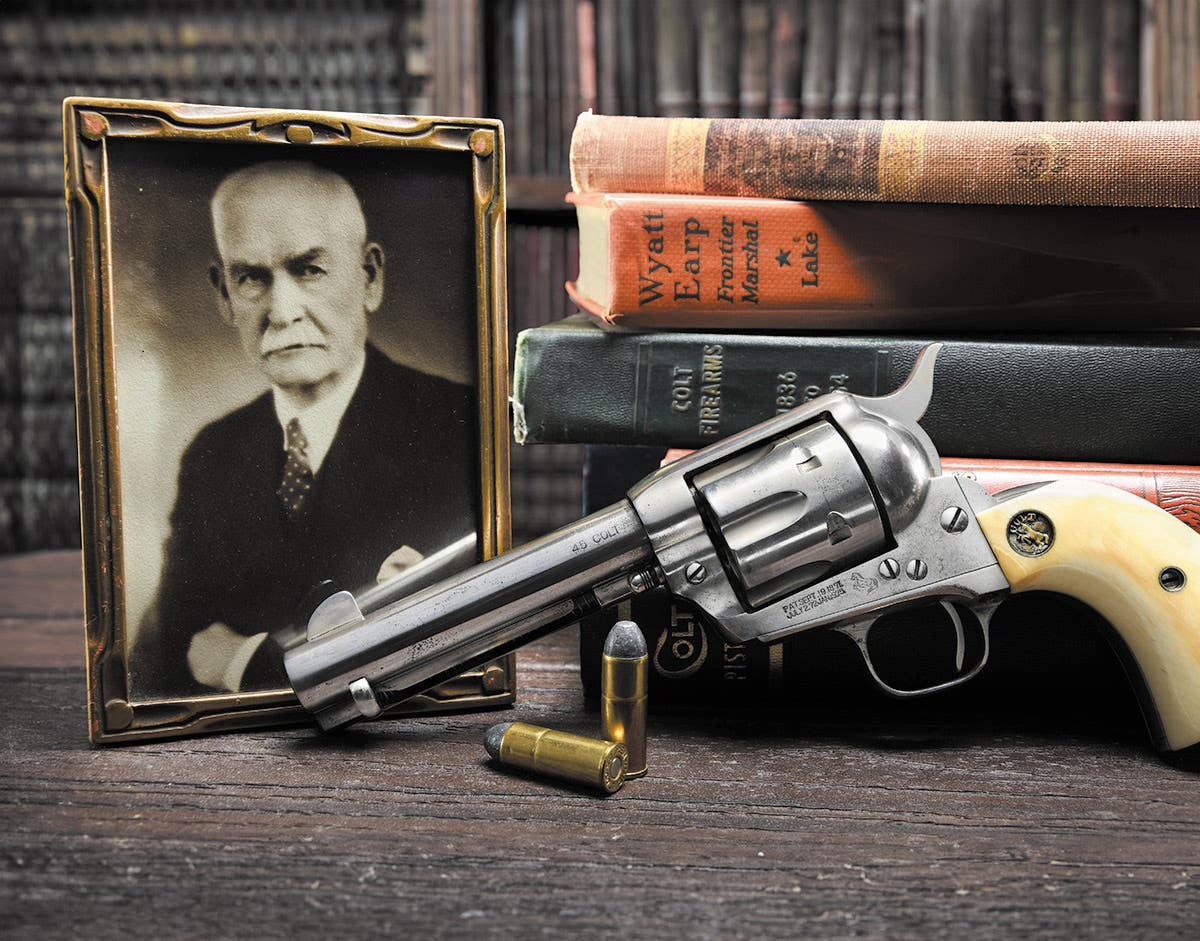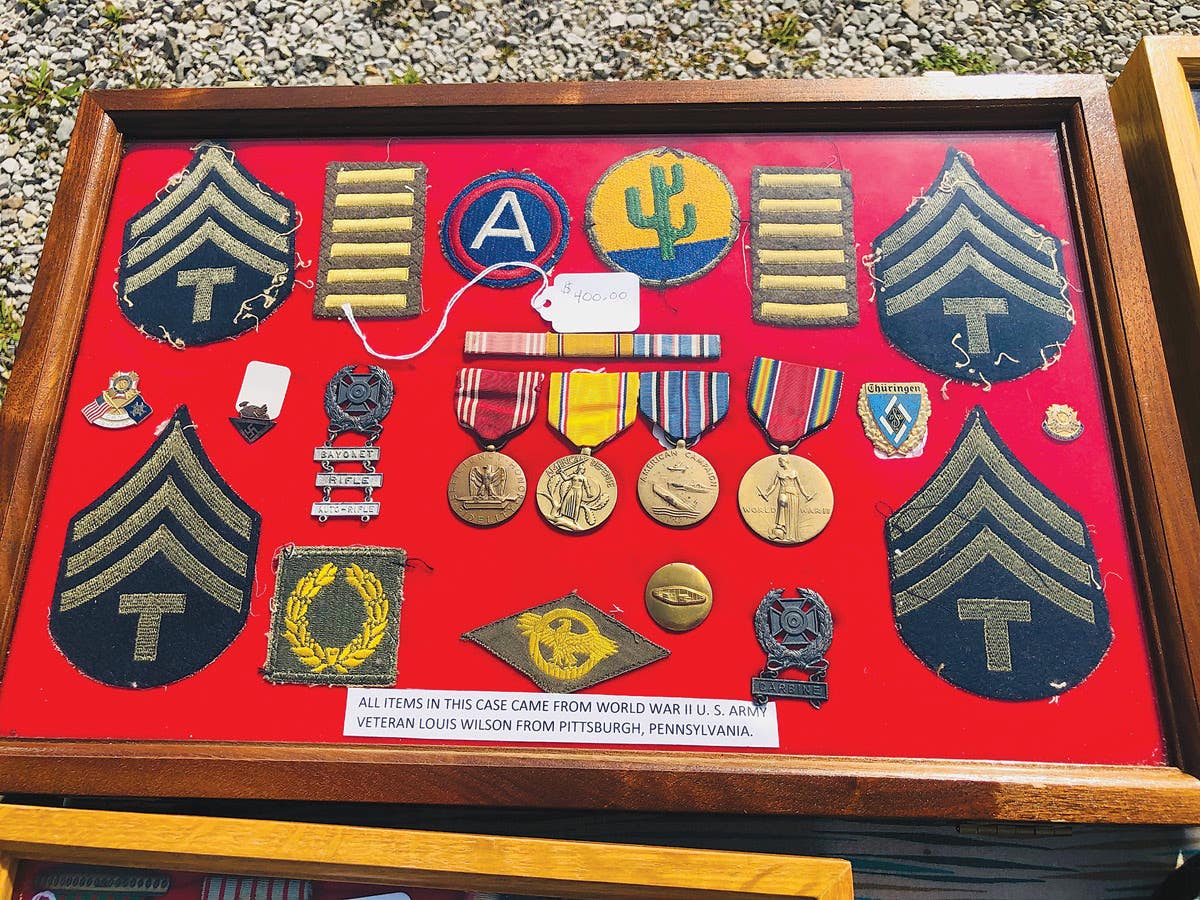A Soldier’s Farewell
Letters remain a testament to Doughboy’s commitment
By Scott Kraska
I have been an avid collector of militaria most of my life, and just when I thought I had seen just about everything, something special comes along. Not because of its value or its size, but because it allows us to feel the history; to really understand the stories of other human beings who came before us, men who knew courage, valor and honor, as well as the less talked about feelings of dread, sadness and fear. Some of these objects show the American Soldier for who he really was: someone just like you or me.
Recently at a show my friend, Art Beltrone, told me the story of a WWI Chaplain's paper lot that he had purchased. As he described the various items of interest he came to a small subset of papers that caused the hair to rise on the back of my neck.
They were from a man who had a premonition of his own death before going into battle, who wrote farewell letters to his sister, mother and girlfriend. Lots of soldiers have feelings of impending doom before battle, but how many of them are moved to write farewell letters? In 25 years of collecting WWI items, I had never heard of anything like them. I had to get these!
He brought the grouping to me at the next show. The set consisted of 3 captured German "Feld Poste"cards, soiled and blood-stained at the corners, written by a US Army corporal, and a letter to the Chaplain from his Commanding Officer with instructions on how to handle this very unusual situation.
BACKGROUND OF THIS DOUGHBOY
Irving L. Martin was born Sept. 27, 1896, in Lyons, N.Y., entering the service at Rochester on March 31, 1915. He served 6 months on the Mexican Border and then later served in France as a Corporal of Company A, 108th Infantry of the 27th Division.
Martin arrived in France in May 1918, moving into the line at East Poperinghe on July 25. On Aug. 31, the Ypres-Lys Offensive began, and Martin fought in the Dickebusch Sector, where the Allies caused the German's Sept. 3 withdrawal.
Sept. 24 marked the beginning of the Somme Offensive, where some of the heaviest fighting and highest casualties of the New York units were seen. It was at St. Souplet where Martin's worst fears came to pass.
A PREMONITION?
I examined the documents. First was the note sent to Chaplain Bass, the regimental Chaplain of the 108th Infantry. It reads, "Enclosed are three final messages written by Private First Class Irvin L. Martin, practically on the eve of his death. As they are much the worse for being on his person at the time of death and they have a specific request that they be forwarded, I did not send them to the Effects QM, but ask that you see they are sent to their respective destinations without fail. They have been cleaned as much as possible. S.S. Curtis, D/S to Div HQ".
I then looked over the notes themselves. They had been in one of his pockets stacked together. As the 21-year-old soldier was searched for identification and the personal effects gathered from his body, these letters were found and removed from the pocket of his tunic. The bottom corner of each of the three had been soiled and saturated with blood, but cleaned by the Effects group. The men being unfamiliar with what to do in this situation brought them to the attention of their commanding officer.
The first was dated Oct. 16, 1918. Marked on the address was, "Finder please mail to..."
"My Dear Mary,
I hope that you are well and happy. We are going over the top in the morning, thus this note, in case I do not come back. Don't sigh or cry Mary, death is but the gateway to a better home.
As ever. Love Irv."
The second letter, marked "Please Mail to," written to his sister, Alma, is also dated Oct. 16, 1918. He writes:
"Dear Alma,
This note in fond farewell should I fall on the field tomorrow. Please don't feel blue or sad as I go to a better home.
Good bye dear Alma. Irv"
The third and final letter was to his mother, which is marked, "Please Mail to..."
"Dear Mother,
Just a fond farewell. Don't feel sad or lonely for I have gone to a better home. With all my love to the best mother of them all. Irving."
On the morning of, Oct. 17, 1918 -- the day after Martin wrote the letter -- the Officer in charge of Company A, stood up and blew his whistle to advance. The men of Company A emerged from their trenches, shrugging off the cold and trudged ahead through broken wire and abandoned trenches. They advanced, shoulder-to-shoulder with the other companies of their Regiment.
They advanced with little resistance and actually progressed 1,500 yards past their day's objective, Jonc de Mer Ferme. The Germans were famous for setting up wire and other obstructions to steer units into field of fire, and what the Regiment faced was no different. Suddenly German machine guns opened fire from three sides. Men were shot to pieces and riddled with bullets.
Irving Martin was spared the suffering. A bullet hit him in the forehead and he fell dead on the battlefield, immediately transported to his "better place."
After the ground was retaken the following day, Martin's body was carried from the battlefield where it was interred at St. Souplet in the Churchyard cemetery, later relocated to the main American Cemetery and finally, after the War, transported back to his family where he resides today, in the Lyons, N.Y., "Rural Cemetery."
AFTERWORD
These letters survive due to the care of a Chaplain who rewrote the letters on clean stationary and forwarded them on to loved ones, to spare them the pain of seeing their soldier's blood and the grim reminder of that Fall morning. He probably looked at these letters and could not bear to dispose of a man's final wishes and instead packed them away in his trunk with his memories of Belgium and France, not realizing that he preserved one man's story for us to ponder almost 100 years later.
YOU MAY ALSO BE INTERESTED IN:
*Military Vehicles Magazine
*Standard Catalog of U.S. Military Vehicles, 1942-2003
MORE RESOURCES FOR COLLECTORS
*Great Books, CDs & More?
*Sign up for your FREE email newsletter
*Share your opinions in the Military Forum








